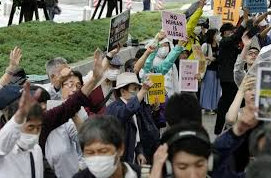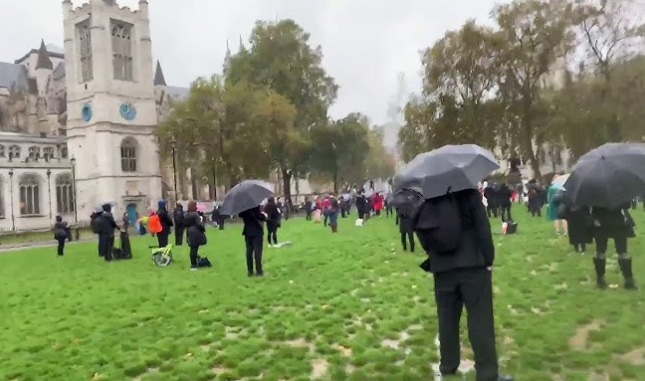
New Legislation Sparks Concerns Over Persecution Risks
Japan’s parliament has approved a significant revision to its immigration and refugee law, enabling the forced repatriation of asylum seekers who have been denied refugee status twice. This change, which has drawn sharp criticism from human rights activists, raises fears that individuals may face persecution or even death if returned to their home countries.
The revision was passed by Prime Minister Fumio Kishida’s governing coalition and other conservative parties, despite strong opposition and protests. Supporters argue that the law will streamline the process for immigration authorities to repatriate foreign nationals who do not meet the criteria for refugee status, thereby preventing prolonged detention for those who repeatedly apply for asylum to extend their stay in Japan.
Critics, however, warn that this could lead to the expulsion of individuals who are genuinely at risk in their home countries, as the law allows the government to deport anyone unable to demonstrate reasonable grounds for their asylum claim after two denials.
The passage of the refugee bill incited protests both inside and outside the parliament on the day of the vote, with demonstrators holding signs demanding an end to the “bad revision” and calling for the bill’s repeal. Opposition lawmakers also voiced their dissent through speeches during the parliamentary session.
In a separate development, Kishida’s Cabinet approved a plan to expand job categories eligible for foreign workers, potentially paving the way for their permanent residency. This initiative marks a notable shift in Japan’s traditionally restrictive immigration policy, aiming to address the challenges posed by a rapidly aging and declining population. The new plan will allow foreign workers in nine additional industries, including fisheries, agriculture, and hospitality, and enables those with short-term visas to apply for longer stays if they pass language and technical skills assessments.
Japan’s population, currently over 125 million, has been in decline for the past 16 years and is projected to drop to 87 million by 2070. This demographic shift poses significant challenges for the economy and national security, especially as Japan seeks to bolster its military in response to China’s growing assertiveness.
In 2022, Japan accepted only 202 refugees out of 10,195 applicants screened, reflecting a rejection rate of over 98%. A previous attempt to revise the refugee law in 2021 was abandoned following public outcry over the death of a Sri Lankan woman in immigration detention, who reportedly did not receive adequate medical care despite her deteriorating health.










